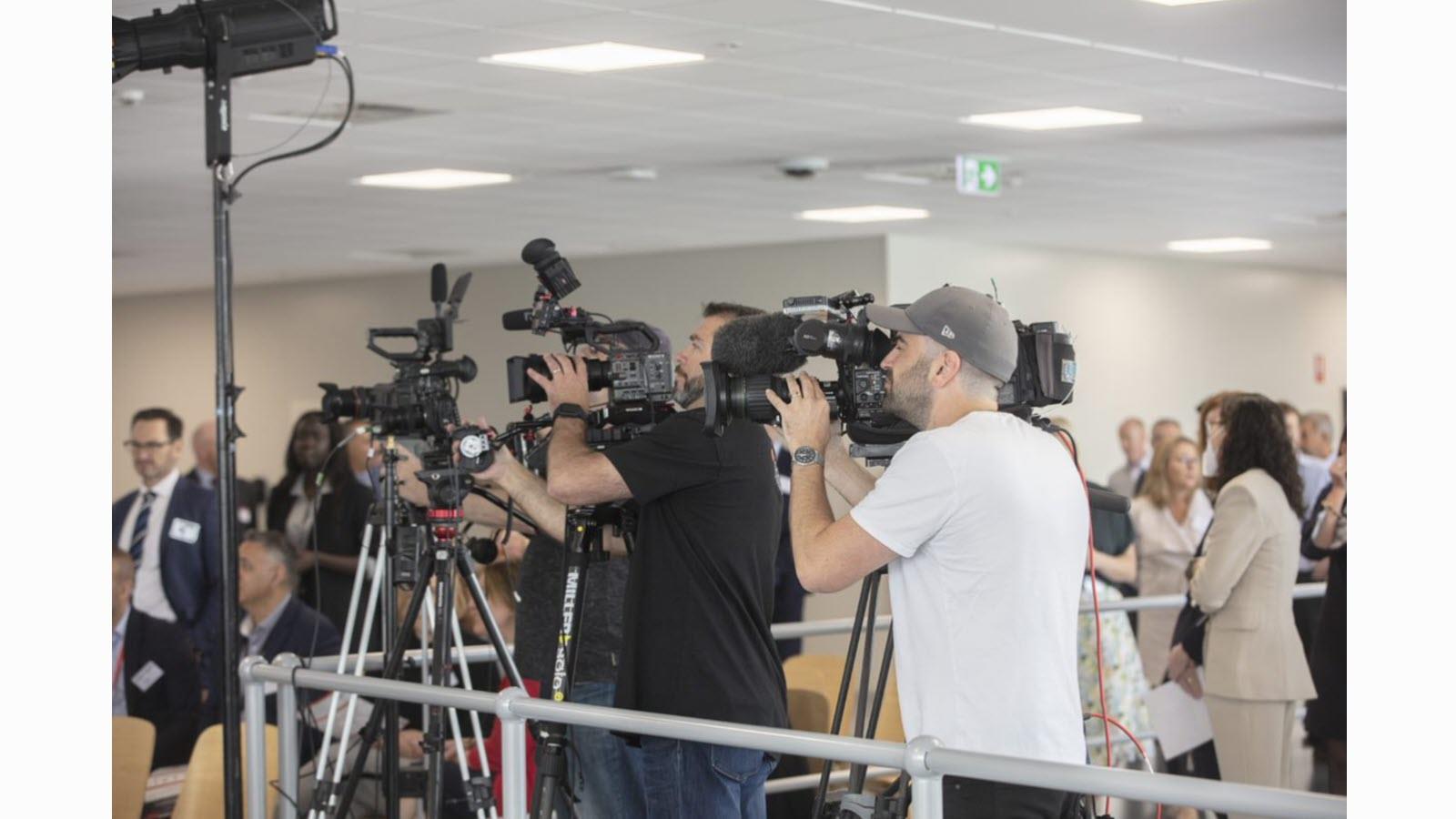When CSL opened a new facility to fractionate human plasma in December, the event was a milestone for manufacturing and for the company, which is currently investing more than $2 billion in Australia. The launch drew a large audience and media attention.
Plasma fractionation is a complex process that takes plasma, a component of human blood, and extracts proteins that are critical for people who live with immune deficiencies, hemophilia and other serious conditions. The expanded facility in Australia comes online as demand for plasma-based medicines is growing. Get a look behind the scenes at the Broadmeadows opening celebration:
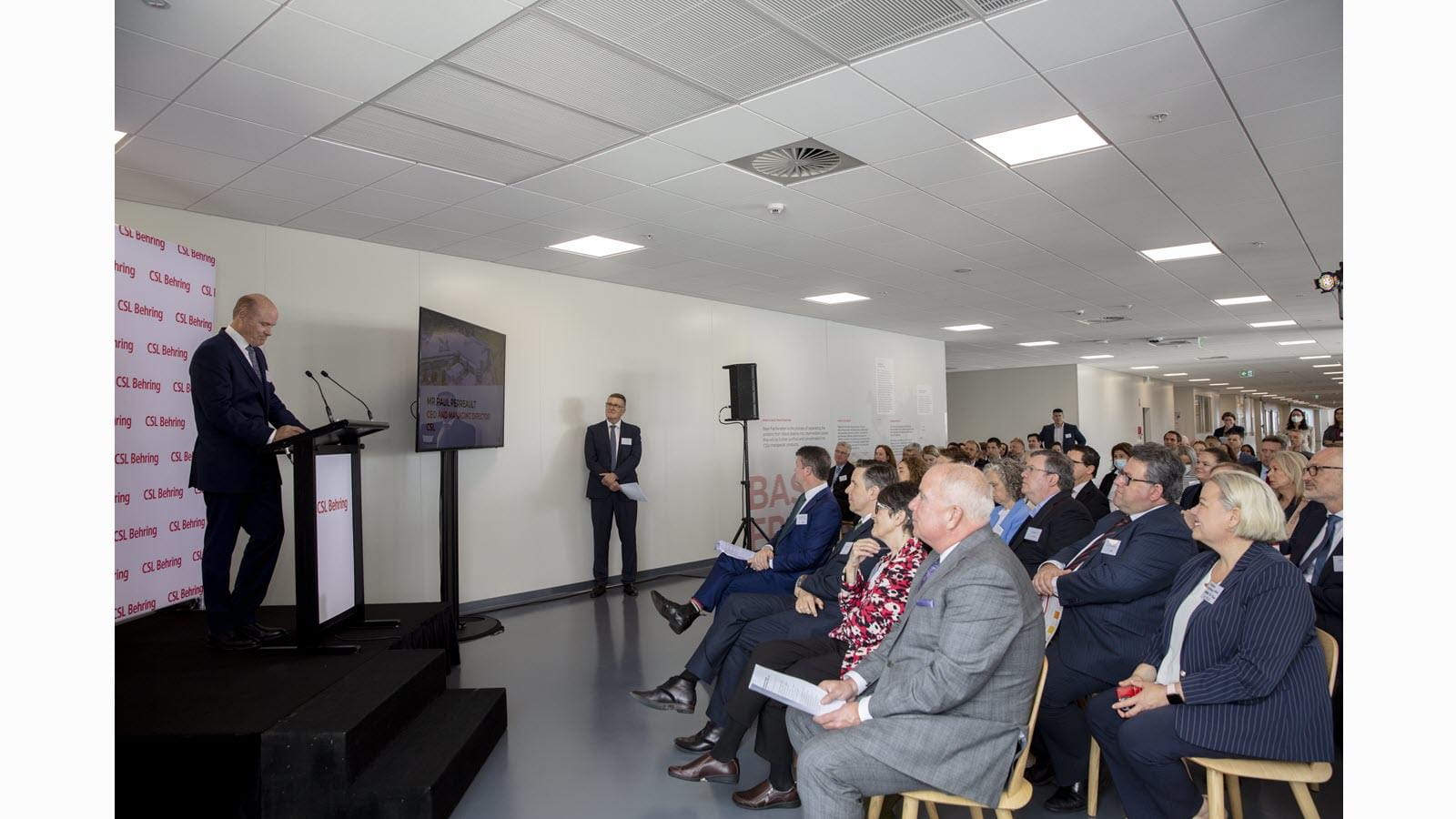
CSL Limited CEO Paul Perreault addressed the crowd, which included Paul McKenzie (seated at right in the front row), the company’s Chief Operating Officer. McKenzie will succeed Perreault when he retires in March.
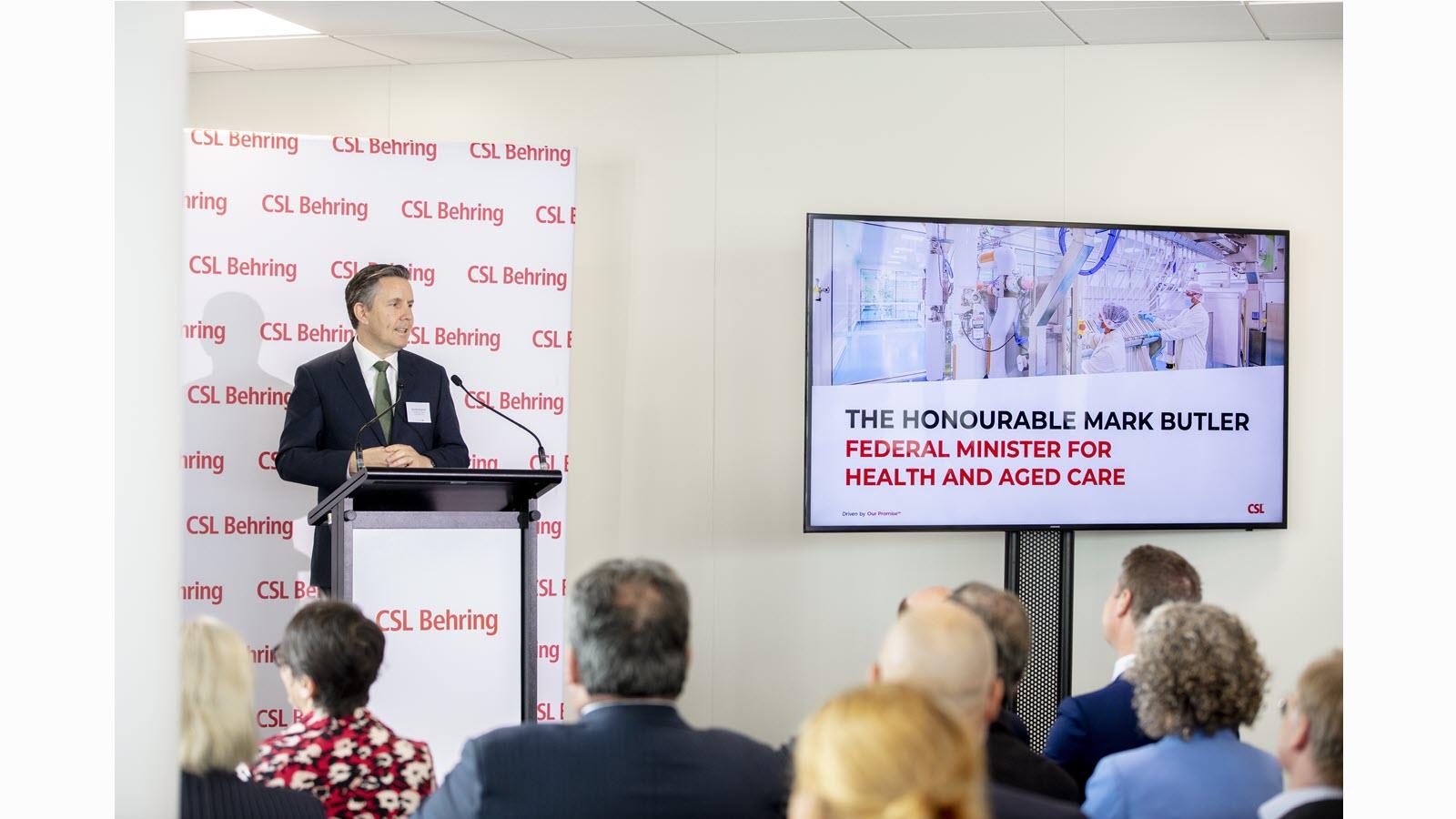
Speakers included the Hon Mark Butler MP, Australia’s Minister for Health and Aged Care.
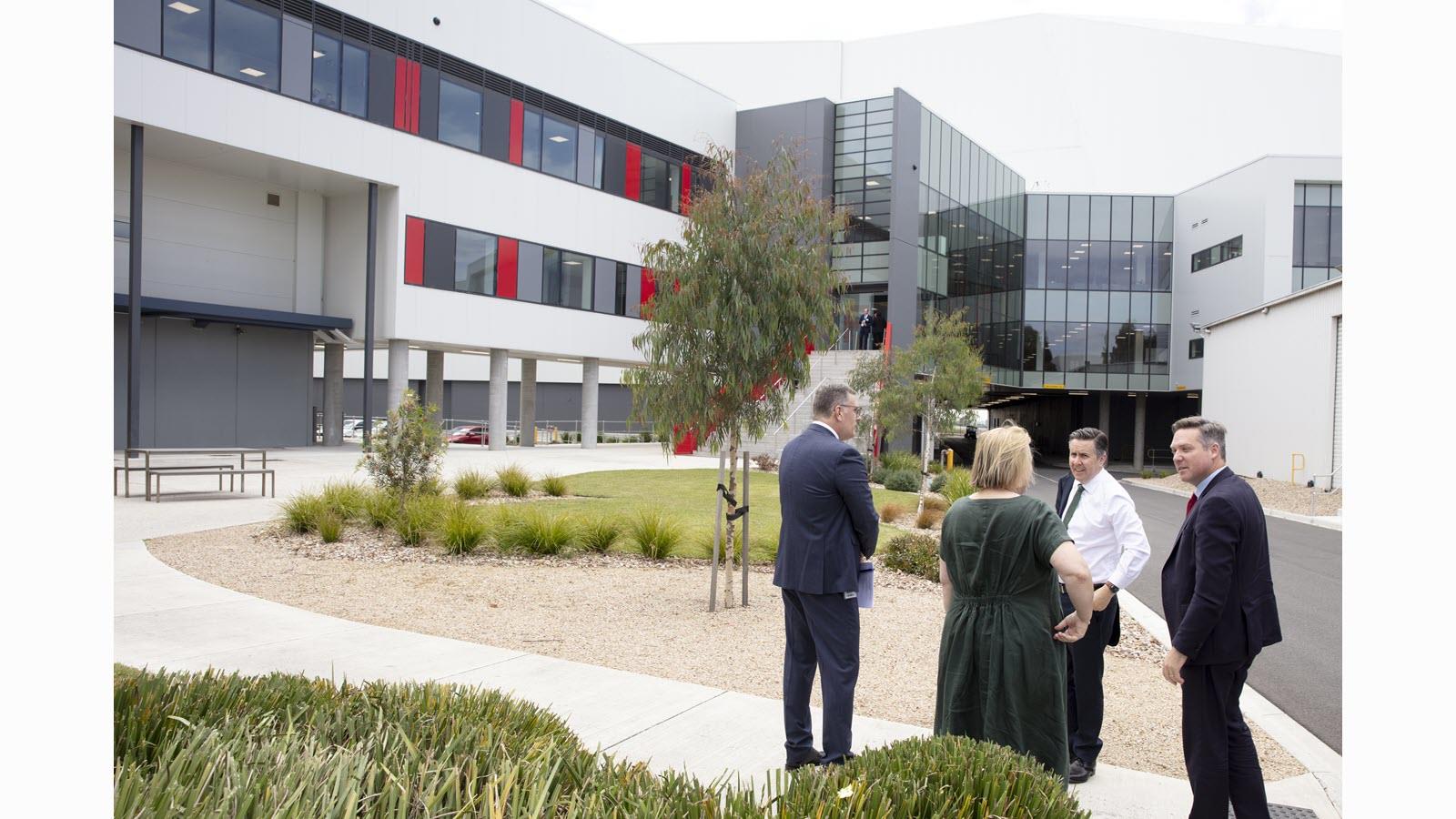
Broadmeadows Manufacturing and Site Head, Andrew Hodder (left) meets Australian Minister for Health and Aged Care, Mark Butler, outside the Broadmeadows facility, which took four years to complete.
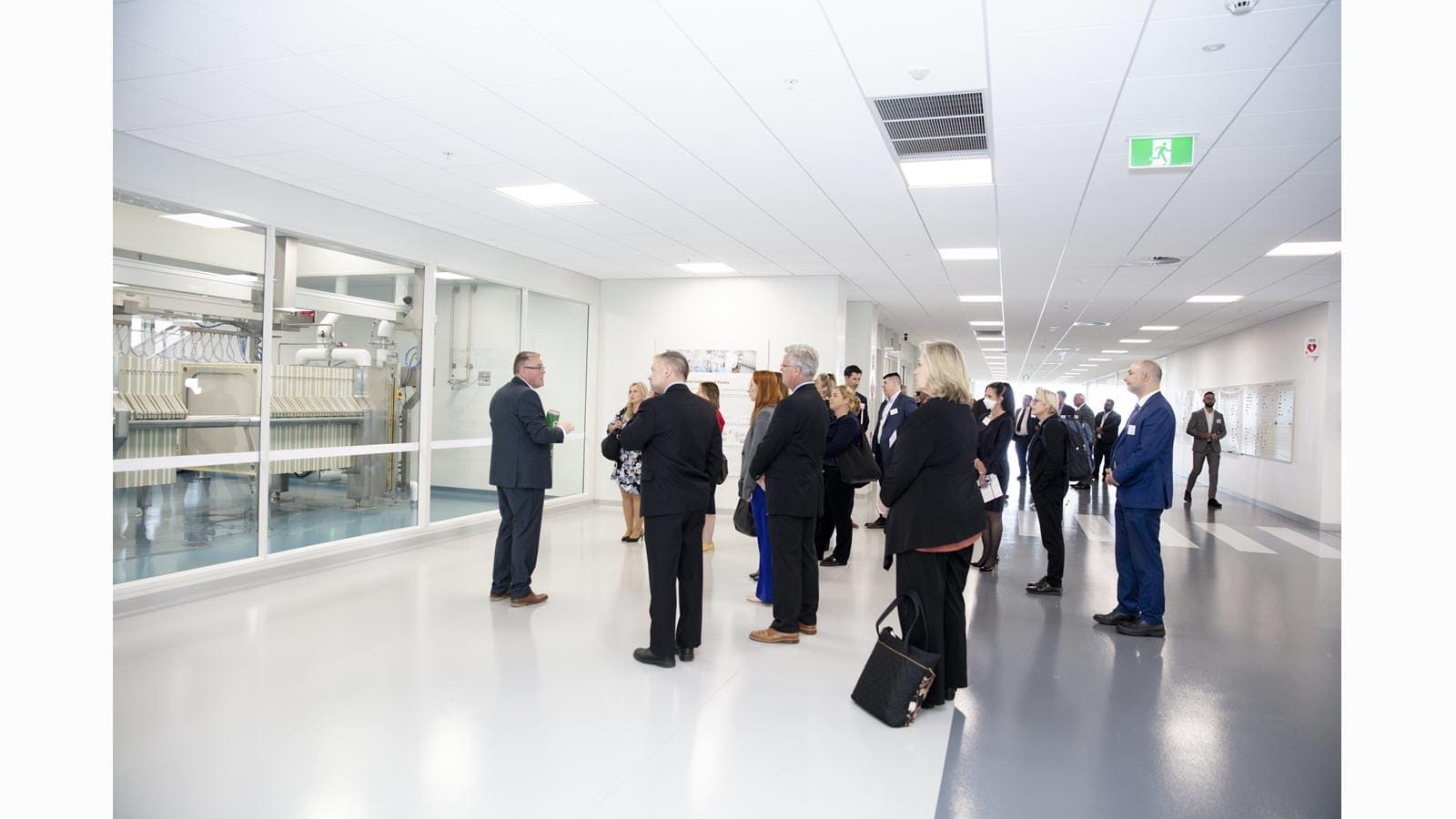
Visitors tour the building and view a filtration step in the process that derives proteins from donated human plasma.
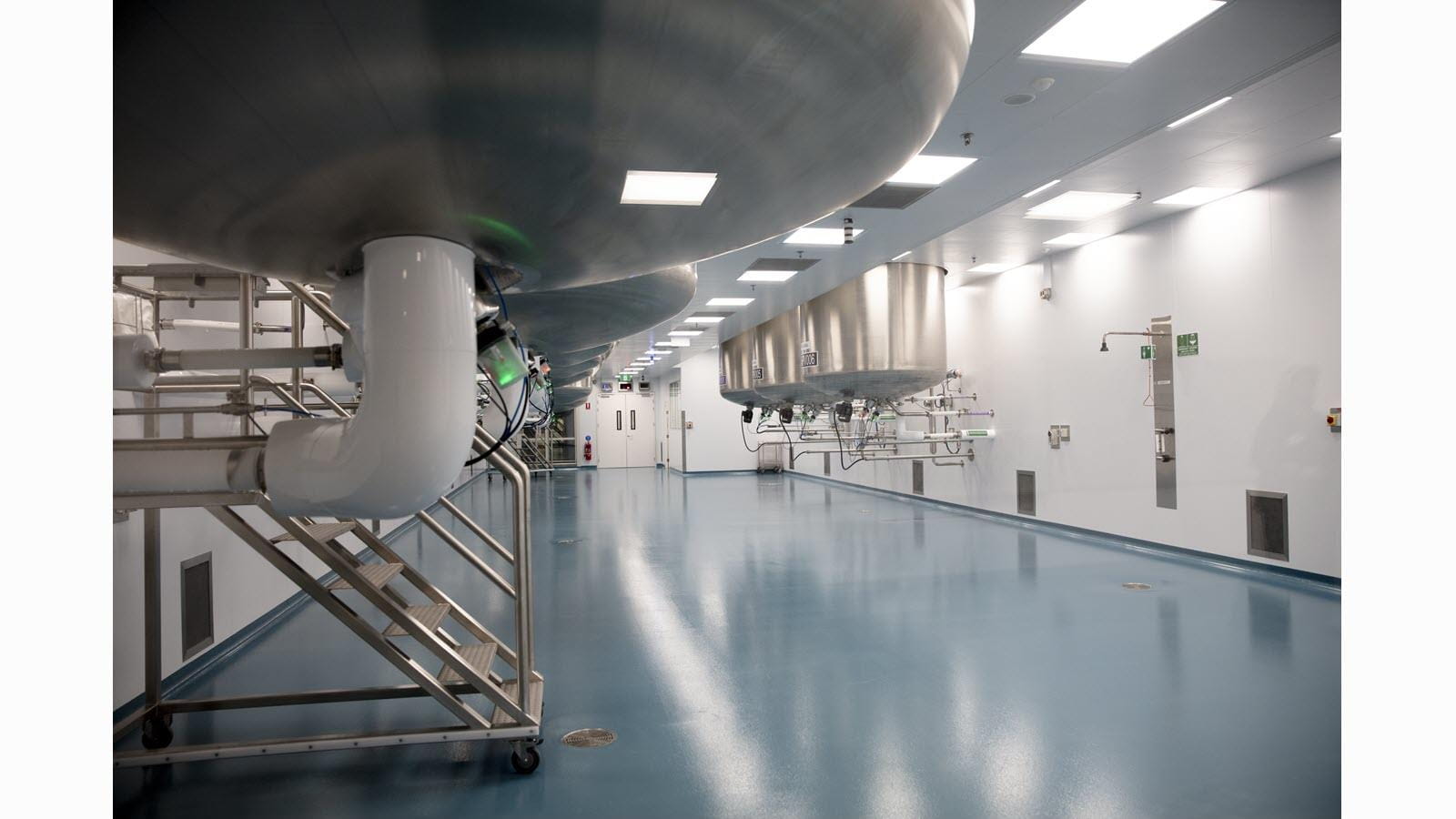
The high-capacity facility includes 198 stainless steel tanks used to process nine million plasma equivalent liters per year. Plasma-based medicines are also needed for burns and other life-threatening medical conditions.

CSL, which got its start in Australia more than 100 years ago, now has more than 32,000 employees worldwide. The company recently expanded its brand with the addition of CSL Vifor, a business that has a portfolio of products in nephrology and rare disease, kidney dialysis and iron therapy. CSL also includes CSL Behring, a leader in treating rare and serious diseases; CSL Plasma, one of the world’s leading collectors of donated plasma; and CSL Seqirus, its vaccine business.



